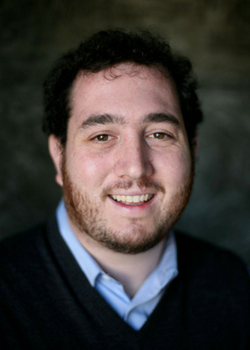A story is told of Rabbi Sampson Raphael Hirsch (Germany, 1808-1888), the intellectual giant behind the founding of contemporary Orthodox Judaism: It is said that late in his life, the old rabbi surprised his students by scheduling himself a long trip to Switzerland. When they inquired about why he insisted on making such a journey, he replied:
“Soon, I will stand before the Almighty. I will be held answerable to many questions. But, what will I say when I am asked, ‘Shimson, my son, it is true you did many mitzvot, but did you also remember to see My Alps?”
The Jewish tradition indeed contains within it many rules – foods that we are told to abstain from eating, activities that are not to be done on Shabbat and holidays, and other ways in which we are supposed to limit ourselves in the name of a larger holiness. Yet, it would be wrong to characterize Judaism as an ascetic tradition. Quite the opposite – ours is a community that is taught to celebrate life and to bless the beauty and bounty of this world. With very few exceptions in our 3,000-year religious history we have had no monastic ideal; in fact, the Sages of the Talmud had harsh words for those who chose to remove themselves from the ordinary pleasures of daily life.
This attitude in particular comes to play concerning a peculiar category of religious vows described in this week’s Torah portion – the vow of the nazir. A nazirite was a person who elected to undertake a period of self-denial, avoiding wine and cutting their hair, abstaining from mourning rites, even if they were to lose a close member of their family. At the conclusion of the nazirite’s vow, they were instructed to bring a sin offering to the Temple (Number 6:10-11), before resuming ordinary life.
The Rabbis ask, why does the Torah specify that the nazirite must bring a “sin” offering? In what way were they suspected of having sinned? The answer: the act of asceticism itself is a sin, as the Talmud states: “Is it not enough what the Torah has forbidden you that you wish to forbid yourself more things?” (Jerusalem Talmud, Nedarim 9:1). Maimonides echoes this sentiment in his comment on the verse in Ecclesiastes: “Be not over-righteous” (7:6), stating: “No one should, by vow or oath, forbid themselves that which has otherwise been permitted” (Mishneh Torah, Deot 3:1). On the basis of this overwhelming attitude of disdain for voluntary self-denial, the institution the nazir vow vanished from Jewish life nearly two millennia ago.
We often find so-called religious voices equating pleasure with sin, and denouncing things of “this world” as unholy distractions from “the next.” Yet, this is not the normative approach of the Jewish tradition. Instead, we are called upon to offer blessings while standing at the seashore and upon seeing a rainbow, to feast and dance at the myriad celebrations that punctuate our calendar, and to make sure – if we haven’t visited them yet – to get a look at God’s Alps. When our time comes, we don’t want to have visited this world without having taken the time to catch that magnificent view.


 Download PDF
Download PDF